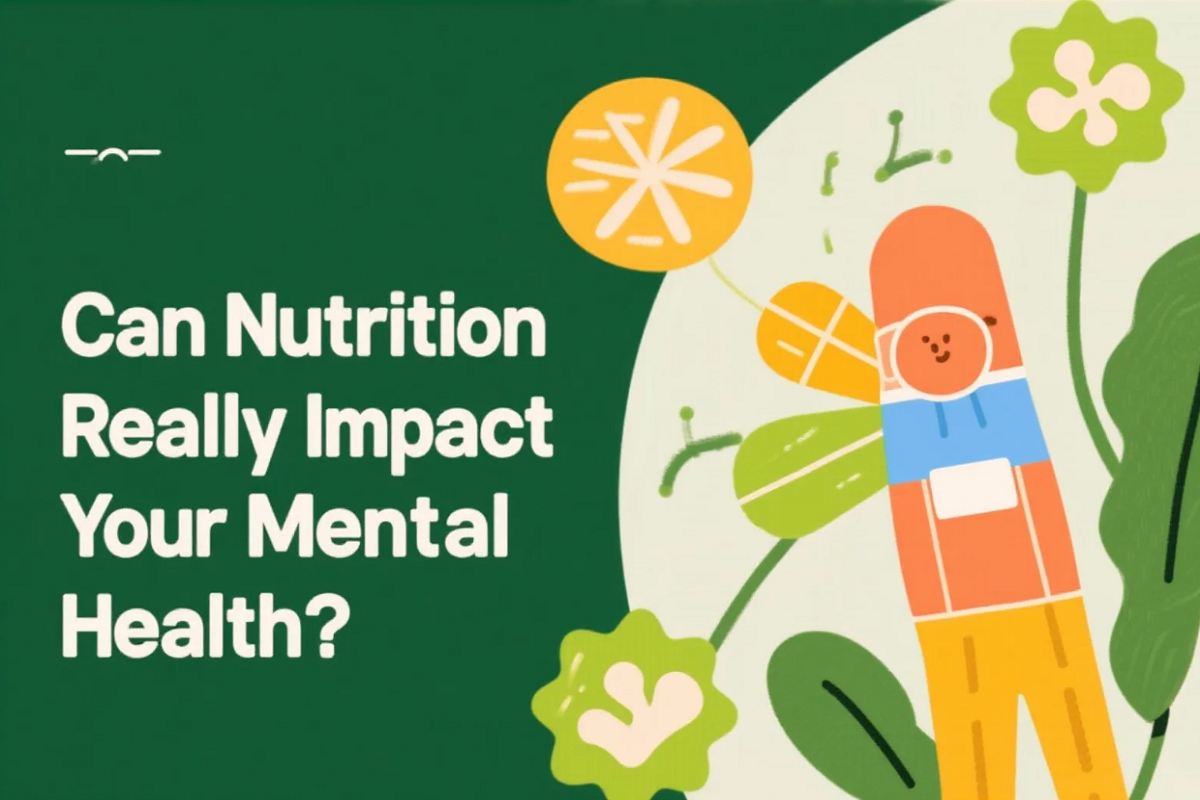Can Nutrition Really Impact Your Mental Health?
-
20
- 05 Nov, 2025

In a world where mental health challenges are increasingly prevalent, the search for effective solutions has intensified. While therapy and medication are well-known treatments, an often overlooked factor is the food we consume. New studies are highlighting the crucial link between nutrition and mental well-being. But can our diet really shape our mental health? This article delves into the profound connection between nutrition and mental health, exploring how dietary choices can impact mood, cognition, and overall psychological well-being.
Understanding the Mind-Gut Connection
The human gut hosts a diverse colony of trillions of microorganisms, collectively referred to as the gut microbiota. This complex ecosystem communicates directly with the brain through the gut-brain axis, influencing emotions and cognitive functions. A balanced diet rich in probiotics and prebiotics can promote a healthy gut microbiota, potentially reducing symptoms of anxiety and depression .
Key Nutrients That Support Mental Health
Omega-3 Fatty Acids
Omega-3 fatty acids, vital for brain health, are abundant in fatty fish like salmon, as well as in flaxseeds and walnuts. Studies have linked omega-3 deficiency to increased risks of depression and cognitive decline .
B Vitamins
B vitamins, particularly B12 and folate, are crucial for nerve function and the production of neurotransmitters. Deficiencies in these vitamins have been associated with mood disorders and cognitive impairments .
Vitamin D
Often called the 'sunshine vitamin,' vitamin D plays a vital role in maintaining brain health. Insufficient levels have been associated with a higher risk of depression and various mood disorders.
Antioxidants
Fruits and vegetables rich in antioxidants, such as berries, leafy greens, and citrus fruits, help combat oxidative stress, which can contribute to mental health disorders .
The Impact of Diet Patterns on Mental Health
The Mediterranean Diet
The Mediterranean diet, characterized by high consumption of fruits, vegetables, whole grains, and healthy fats, has been associated with a reduced risk of depression and cognitive decline .
nutrition.org
The MIND Diet
The MIND diet, a hybrid of the Mediterranean and DASH diets, emphasizes brain-healthy foods like leafy greens, berries, and nuts. Adherence to this diet has been linked to slower cognitive decline and a lower risk of Alzheimer's disease .
The Detrimental Effects of Poor Nutrition
Conversely, diets high in ultra-processed foods (UPFs), added sugars, and unhealthy fats can negatively affect mental health. These foods can lead to inflammation, disrupt the gut microbiota, and increase the risk of developing mood disorders .
Practical Tips for Enhancing Mental Health Through Diet
Incorporate Omega-3 Rich Foods: Add fatty fish, flaxseeds, and walnuts to your meals.
Consume a Variety of Fruits and Vegetables: Aim for a colorful plate to ensure a range of nutrients.
- Limit Intake of Processed Foods: Reduce consumption of sugary snacks and fast food.
- Stay Hydrated: Drink plenty of water throughout the day.
- Mindful Eating: Tune into your body’s hunger signals and steer clear of overeating.
The evidence is compelling: nutrition significantly impacts mental health. By making informed dietary choices, individuals can enhance their mood, cognitive function, and overall psychological well-being. While diet alone may not replace traditional treatments, it serves as a powerful adjunct in the pursuit of mental health.










